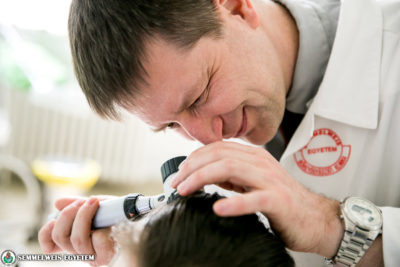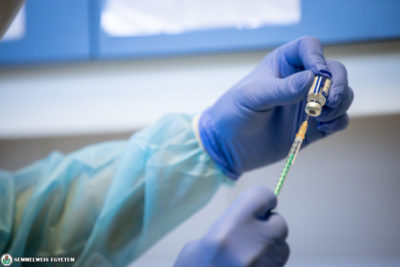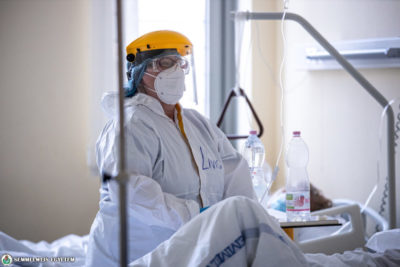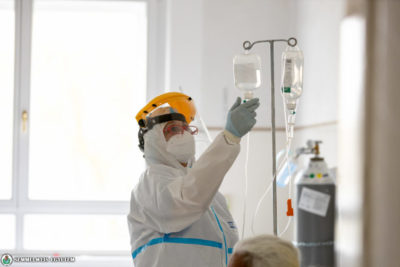 Over the past year, 10,000 patients used the online consultation service in more than 12,000 cases, by describing their skin problems in writing and sharing five photos with the department’s specialists.
Over the past year, 10,000 patients used the online consultation service in more than 12,000 cases, by describing their skin problems in writing and sharing five photos with the department’s specialists.
Dr. Miklós Sárdy, director of the Department of Dermatology, Venereology and Dermatooncology, shared the experiences of the past year, noting that the initiative was very well-received, as it is a relief for many patients that they do not have to attend a consultation in person during the pandemic, while they still receive a diagnosis quickly, as well as the necessary treatment and electronic prescription, in as little as a few hours.
In some cases, even incapacitated patients were able to receive treatment, with the help of their relatives; in their case it is especially important that they did have to be transported to the department in an ambulance. If a patient is unable to provide their data themselves, they can designate a representative who can do it for them, thus allowing family members to help the process.
The department head said that teledermatology worked very quickly and simply in the case of general skin problems – such as hand eczema, poison ivy rash, warts or fungal diseases –, but in the case of skin cancer or mole examinations that require more complex treatment, this new form of care could not replace in-person visits.
Dr. Miklós Sárdy also noted that the teledermatology system functioned so smoothly thank to the necessary IT background, including the supporting software developed by MedInnoScan Kft in collaboration with Semmelweis University, as well as the electronic health care service platform (EESZT) that handles e-prescriptions. The department plans to continue the teledermatology service even after the current pandemic ends.
Orsolya Dávid
Translation: Tamás Deme
Photo: Attila Kovács – Semmelweis University


